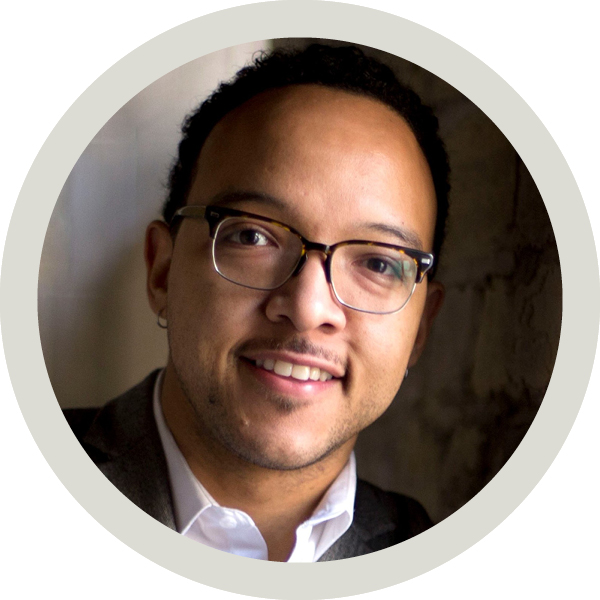Julian
DeShazier

Reimagining
The Church with
Julian DeShazier
Jesus’ teaching is so radical it is apocalyptic: the values of the old world must be turned upside down. He did not merely want a more just world; he wanted a re-imagined one.
The question I would pose for Christians today, is what is the nature of this re-imagined world? While it is possible that Jesus, like other Zealots, advocated an armed rebellion and an earthly kingdom, there is also much evidence from his teachings that he advocated neither a worldly kingdom nor a wholly transcendent one. That is, he promoted a more just order, a radically changed world, but seemed also to believe we could arrive at it through means far different from his contemporaries.
Jesus was part of the apocalyptic movement. Unlike Paul, he seemed not to believe that the “end” would arrive at some specific point in the coming days but that it was already here if we can only undergo an interior transformation. This concept, called “realized eschatology”, represents a unique teaching that likely came from the historical Jesus.
In breaking bread with the untouchables of his society, Jesus ushered in a new sacrifice: this is where the communion ritual comes from. It required no priest – at least until the church was Romanized. The story of Jesus remains incredibly influential today. The reclamation of the Jesus of history could teach us so much about our world today, more than much of the teachings we find in the Church: he was a poor man from a marginalized class, forced to sell his labor because of the policies of the empire; he challenged that empire, demanding that they deal honestly with the fact that they’d stolen the land of his ancestors; and he challenged his own people, who struggled to retain their identity and to find meaning in the face of cultural imperialism. For Christians, seeing the historical Jesus in context should not hinder their experience of Jesus the Christ; rather, in understanding more deeply who Jesus likely was, the experience of Jesus Christ through the engagement of the believer in the world makes for a more alive, more meaningful, more authentic Christianity. In other words, don’t look to find Jesus in the eyes of the preacher at your megachurch; find him in the undocumented laborer, standing by the side of the road, waiting for work to feed his family. This man, like Jesus, is living at the edge, and can see the injustice and the apocalyptic nature of the day.
Many, throughout history, have understood this. When Dr. Martin Luther King, Jr. said that, “Human salvation lies in the hands of the creatively maladjusted,” he was linking the experience of his people, an oppressed and enslaved people, to the Israelites in bondage and to the Jews of Roman Palestine. He called on his people not to adjust to the injustice of his day. He saw that much of the “maladjustment” to an unfair and insane world – and the laws of Jim Crow were truly insane – was a rational response. What was required was to turn one’s maladjustment into something creative and transformative.
The Great Reimagining
Theodore Richards
Guest Bio
As a national speaker, advocate and emcee, Julian “J.Kwest” DeShazier (Dee-Shah-Zee-Ay) has appeared on ABC, FOX, NPR and Dr. Maya Angelou’s “Oprah & Friends” radio program. J.Kwest (jay-quest) is also an Emmy Award-winning musician, featured in the video “Strange Fruit,” a commemoration of the Billie Holiday song and a meditation on racial violence. The Chicago native and graduate of Morehouse College and the University of Chicago is also pastor of University Church – a Sanctuary congregation for immigrants that also worked with Chicago’s Southside community to raise a Level 1 Trauma Center. Recognized by Crain’s Chicago Business as one of “40 Under 40” leaders in Chicago, and by the Center for American Progress as one of “10 Faith Leaders to Watch” in 2018, he serves as the inaugural chair of the Community Advisory Council for University of Chicago Medicine; as associate director of the Office of Experiential Education at McCormick Theological Seminary; and is a Leadership Greater Chicago fellow. Julian is a regular contributor to On Scripture and Sojourners, where he is also a board member.